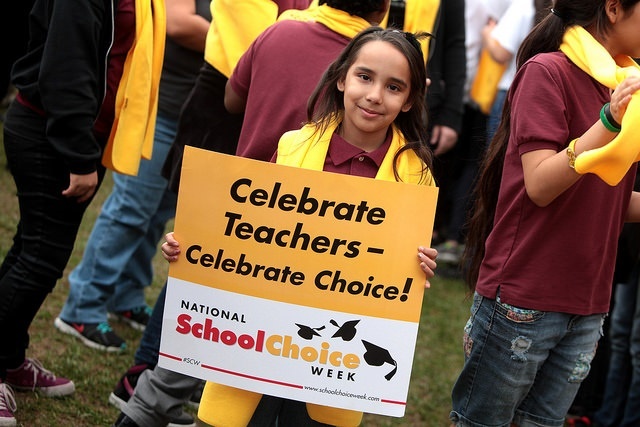There are a couple of go-to arguments for opponents of school vouchers. Usually when a legal challenge is presented against a state’s private school voucher program, the plaintiffs will claim that it takes taxpayer money out of the state’s coffers and diverts it away from struggling public schools and into comparatively wealthy, often religion-based private schools. This claim is partially accurate in some states. For example, North Carolina’s Opportunity Scholarship Program uses public funds to sponsor low-income families who want to send their child to a private school (though the funds do not come directly out of the public school budget but instead from the general fund). Some states, however, are trying a different approach and getting the same condemnation.
Unlike traditional vouchers, tax credit scholarships provide the same service to students with money collected straight from private donors. These programs offer tax deductions to businesses or individuals who donate. The deductions are often close or equal to the amount of money donors are willing to provide to the student scholarship program. The donated money functions like a voucher to finance students who want to attend private schools but could not necessarily afford to otherwise. Nonetheless, some states with tax credit scholarship programs have recently faced legal challenges from the usual suspects in the battle for school choice.
Legal Challenges Continue
Last August, the Supreme Court of New Hampshire upheld their state’s tax credit scholarships as constitutional after two groups filed a lawsuit challenging the program. The American Civil Liberties Union and a group called Americans United for Separation of Church and State filed the lawsuit. Both groups believed that the program was in violation of New Hampshire’s Blaine Amendment, which bans taxpayer aid to religious institutions. Their challenge might have been successful had the state been operating a school voucher program with public money, but that simply wasn’t the case. Thanks to tax credit scholarships, private companies or individuals could voluntarily donate all the money that went towards helping students without taking a cent out of public funds. Those who choose to donate receive a tax credit of 85 percent of the sum donated in New Hampshire. So, the most critics could say is that the state government took 85 percent less from those who already performed a public service than it otherwise would have.
Similar battles have been going on in other states. In Florida, teachers unions have challenged the constitutionality of their state’s income-based scholarship program, which has been helping thousands of economically underprivileged students since 2001. Opponents use the same faulty argument saying the program takes money from public schools and sends it to private schools. It doesn’t seem to matter that the money is actually going towards students whose families want them to attend private schools. In many cases, the schools participating in the program end up vilified by those against school choice.
Arguing Against Choice
It’s easy for middle class activists to oppose tax credit scholarships on the grounds that traditional public schools should be good enough for low-income families, and businesses shouldn’t get a tax break for helping send kids to schools which may already be financially stable. In fact, it seems almost too easy for some people to say to themselves, “I find this policy less than ideal. Perhaps we should simply do away with it regardless of weather or not other people want it.” As is often the case in politics, some people simply can’t stand others having the freedom to make choices they disapprove of.
The whole point of collecting taxes—at least in theory—is to pay for basic public goods the private sector wouldn’t necessarily provide on its own. Most Americans agree that one of these essential public services is guaranteeing that all children have access to a decent education. To make the argument that offering tax credits in exchange for philanthropic donations is somehow undermining education makes little sense when you consider all these donors and scholarship programs are doing is making sure parents at least have more than one option for their children. Unfortunately, what families actually want seems to be trivial to those who would ban such forms of school choice.
Chris Neal ([email protected]) writes from New York, New York.
Image by Gage Skidmore.




